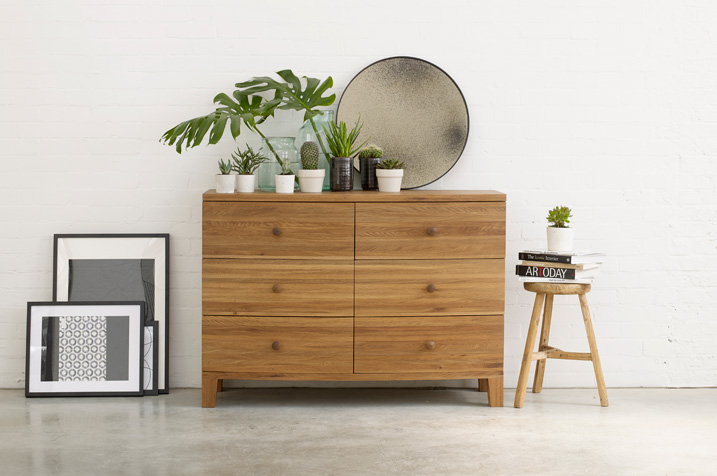
Does it matter you might ask? Yes it does! Sustainability is as important in the furniture industry as any other. Wood offers a wonderful sustainable resource which is much less damaging to the environment than metals or plastics. Timber is a beautiful, durable and renewable raw material, not to mention its environmental attributes. Yet wood is only sustainable if the forests are managed correctly. And then there are issues of workshop practices, transportation methods etc. You may well take pride in your home, and part of that is knowing your furniture is responsibly sourced. So if you're interested in this issue, here's how to get through the industry smokescreen and find out the truth!
A good starting point is with the materials your furniture is made from. Metals and plastics are made from processes which are often environmentally damaging. And if there is a positive environmental story behind them, ask what it is! For example some linoleum is rather surprisingly made from almost 100% natural materials, almost 60% of which can be recycled. Most of our furniture is made of 100% solid timber so we concentrate on that. With regards to timber, there are two areas of criteria in certification: the forest and the final forest product. The first ensures that the forest is maintained in a sustainable way. The second makes sure that the products made from those forests are guaranteed at each stage of the supply chain. This is called the ‘Chain of Custody’ (COC). So any product that we sell with a certification is the COC version. It means that every transport company, timber mill, timber merchant and even the retailer has to be certified. Every link in the ‘chain’ has to be approved.
There are many bodies that certify timber and our favourite is the Forest Stewardship Council, or FSC for short. In our eyes they are the ‘gold standard’ partly because they are fully independent. The FSC is not beholden to the timber industry or governments. They use only FSC accredited auditors to certify that their criteria are met. This is important in terms of credibility. Otherwise you’d need a degree in supply chain management to verify the process.
So next time you are perusing furniture, consider asking the following types of questions:
- What is the furniture made from? Are any of those materials sustainably sourced? Is there any independent certification for its sustainability?
- Where is the item made? If outside the European Union, are there regulations in place regarding workshop conditions, child labour etc?
- How is the furniture transported? Is air freight used at all?
- Are there any other environmental benefits to you choosing that piece of furniture? Any recycling aspects? Any waste disposal projects undertaken by the workshop?
- If you ask these questions, chances are you will at times get some evasive answers and blank looks. But by asking you will gradually reveal the true story behind your furniture and play your part in improving the sustainability of the whole industry.
Click here to view our FSC certified products.




